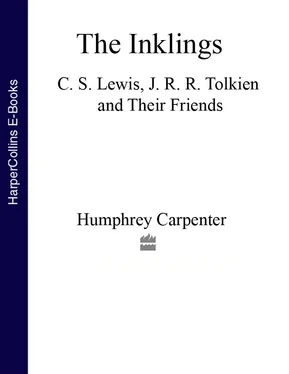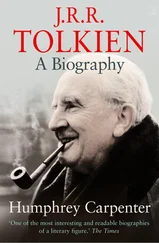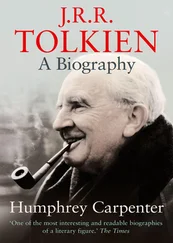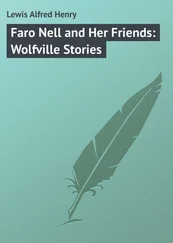They set off up the Thames from Oxford, following the river through low meadows and past riverside pubs (‘Few of these’, remarked Havard, ‘escaped a visit from us’). On the first evening, after an hour or two spent at the Trout Inn at Godstow, Dyson and Lewis began a vigorous argument about the Renaissance, which Lewis contended had never happened at all, or if it had, hadn’t mattered. They went on through the darkness to the Rose Revived at Newbridge; Lewis and Dyson slept in the inn while Havard spent the night on board. ‘The next morning, Sunday,’ recalled Havard, ‘we moved on to Tadpole Bridge and separated on foot to our respective churches in Buckland a mile or so away. That afternoon after lunch we went on upstream and met, coming down, Robert Gibbings in a canoe, naked to the waist. His bearded figure was greeted rapturously by Lewis with a quotation:
Have sight of Proteus rising from the sea;
Or hear old Triton blow his wreathed horn.
At this, Gibbings picked up an enormous conch from the bottom of his canoe and attempted to blow a fanfare on it. After some lively talk, each craft went on its way. Gibbings later put some of the canoe trip into his book Sweet Thames Run Softly.
‘We saw no papers’ (continues Havard) ‘and were cut off from all news except what Lewis and Dyson gathered from the inns where they slept at night. I remember an hour on a riverside lawn waiting for lunch to be ready at Radcot. I remember an evening meal at Lechlade and an expedition upstream for half a mile to Inglesham and the ruined opening into the disused Thames and Severn Canal. I remember little of the return downstream except that the engine broke down, as engines of small boats often do. Lewis and Dyson shared a tow rope on the river bank. I offered my own share; but neither of the other two seemed able to keep the boat out of the bank while it was being towed. So after a short spell ashore I was voted back again to the helm. About this time also the weather broke. Fortunately for tempers, the engine recovered and returned to duty.
‘Our spirits revived until we heard at midday on the Friday that Hitler had invaded Poland. We knew then that war was imminent. The news broke on us, I think, at Godstow, and the return to Oxford was in an unnatural silence. We left Bosphorus at Salter’s, and agreed to meet for a final dinner at the Clarendon in Cornmarket. At dinner Lewis tried to lighten the gloom by saying, “Well, at any rate we now have less chance of dying of cancer.”’
*
War was declared the following Sunday. Lewis had been told that his college rooms, together with the whole of New Buildings, would be required for government use. Gloomily he and Warnie had moved all their books into the basement. A week after the war began it was announced that the building was not needed after all. Laboriously, he brought all the books back again. Indeed it soon appeared that the hostilities were unlikely to cause so very great a disruption in the life of the University – at least, the colleges would not be closing down to anything like the extent they had done in the First World War. Besides the undergraduates (comparatively few in number) who continued with their normal studies, there began some time later to be a steady flow of cadets who were sent to Oxford to spend a few terms reading ‘shortened courses’ before going off to active service. While some dons who, like Lewis, were above the age for military service were required to take on government jobs of various kinds, many remained to continue working much as they had done in peacetime. Lewis soon found that he and Tolkien and most of his Oxford friends were in the latter category. Meanwhile evacuee children were billeted at the Kilns, and, when on 17 September news came that Russian forces had crossed into Poland, Lewis reported that Mrs Moore ‘regards this as sealing the fate of the allies – and even talks of buying a revolver’.
But, as he wrote to Warnie, ‘along with these not very pleasant indirect results of the war, there is one pure gift – the London branch of the Oxford University Press has moved to Oxford, so that Charles Williams is living here.’
PART TWO
“The telephone bell was ringing wildly, but without result, since there was no-one in the room but the corpse.’
It was a conventional beginning to what at first sight appeared to be a conventional detective story. An unidentified man is murdered in the offices of a publishing company. There are a number of suspects. Inspector Colquhoun investigates.
But, when the book was published in 1930, readers soon discovered that it was not exactly like that. The corpse, it appeared, was only the introduction to the real story: the discovery of the Holy Grail in a country church, its theft by a black magic enthusiast, and the attempt of an Anglican parson and a Roman Catholic Duke to rescue it. Nor did even this seem to be entirely what the story was about, for the pursuit of the Grail (or ‘Graal’ as the author spelt it) was soon giving place to visionary experiences and the contention of the forces of good and evil. As Inspector Colquhoun remarked in Chapter Sixteen, ‘What an infernally religious case this is getting!’
The book was called War in Heaven, and it was the first novel to be published by Charles Williams.
*
By that time – 1930 – the name ‘Mr Charles Williams’ was a familiar sight on the list of evening classes arranged by the London County Council at the City Literary Institute and at Evening Institutes in many parts of the metropolis. Here, in bare buildings with naked light-bulbs, people of all ages and types and levels of education would come for a couple of hours each week, to sit in echoing lecture rooms and study the subject of their choice. Those who opted for English Literature would soon find themselves being lectured to by a thin man with round spectacles, a high forehead, and a long upper lip. He talked in a lower middle-class London accent, and the vowels of his speech seemed at first to contrast oddly with his manner, which was quite unlike that of any other Evening Institute lecturer. Sitting on a table and often moving his arms and hands in dramatic gestures, he spoke passionately and without ceasing. Most people gave up trying to take notes.
His lectures were usually on major poets, especially Milton, Shakespeare, and Wordsworth, though sometimes he talked about modem poetry or even (though the classes were supposed to be in English Literature) on Dante. People who came hoping for plain information were taken aback, for, though he chose his words with great precision, he mentioned few facts. Nor did he offer the usual sort of critical opinions. Indeed he did not really discuss
Конец ознакомительного фрагмента.
Текст предоставлен ООО «ЛитРес».
Прочитайте эту книгу целиком, купив полную легальную версию на ЛитРес.
Безопасно оплатить книгу можно банковской картой Visa, MasterCard, Maestro, со счета мобильного телефона, с платежного терминала, в салоне МТС или Связной, через PayPal, WebMoney, Яндекс.Деньги, QIWI Кошелек, бонусными картами или другим удобным Вам способом.












